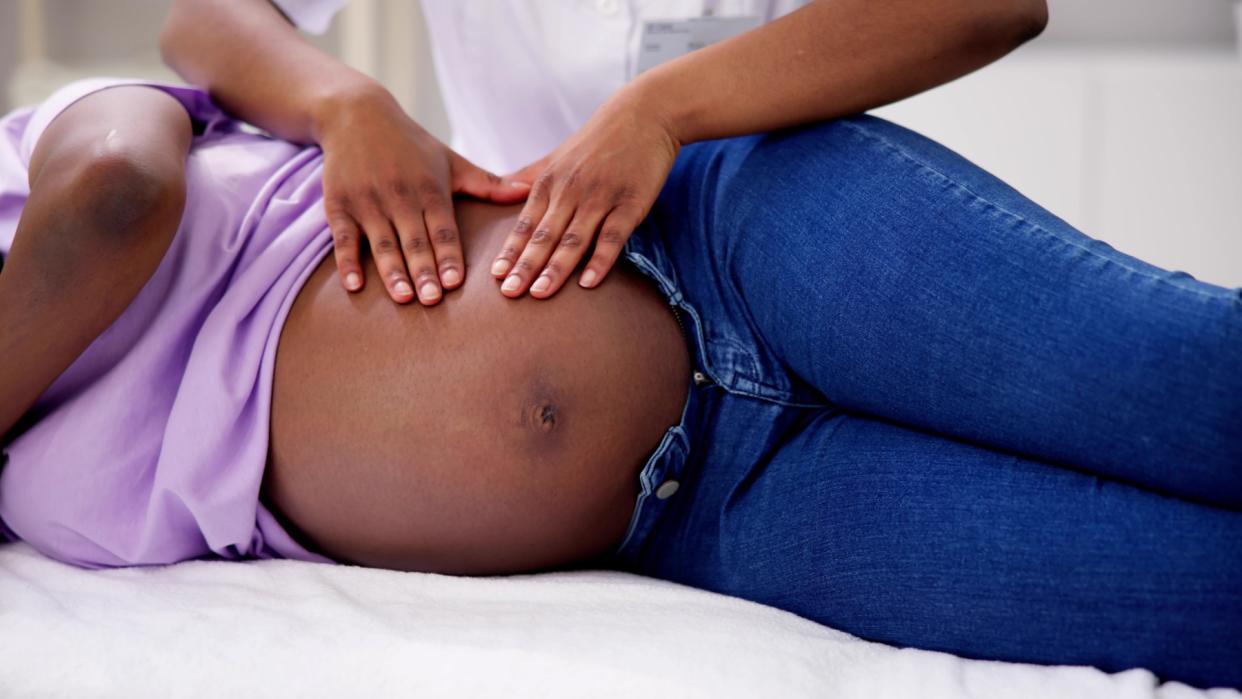Doulas are filling the gaps in maternal care for Black women

The maternal mortality crisis among Black mothers is a well-documented issue that health care advocates have been ringing the alarm about for years. In recent years, more Black women have turned to birth doulas for support throughout their pregnancies and to assist in overcoming disparities in health care and bridging the care gap between Black women and other health care professionals.
What are birth doulas, and what do they do?
Doulas are trained professionals who provide "continuous physical, emotional and informational support" for pregnant clients before, during and sometimes shortly after childbirth to help clients have "the healthiest, most satisfying experience possible," said DONA International, a nonprofit organization initially known as Doulas of North America. The organization was founded in 1992 and was the first to train and certify doulas.
In the 1970s, a growing home birth movement stoked fears about hospital births using possibly unnecessary medical interventions during childbirth, leading more women to seek the help of doulas and midwives in the 1980s, according to the National Museum of African American History and Culture.
While midwives and doulas have overlapping duties, there is a critical difference between them. "Midwives provide medical care, and doulas don't," Maureen Salamon, the executive editor of Harvard Women's Health Watch, said in a Harvard Health Publishing post. Midwives are responsible for maintaining physical health throughout childbirth. Most midwives have completed medical training, which may vary based on state laws. Doulas do not perform medical tasks, but they help laboring women "remain comfortable and calm" by employing various methods that include "suggesting comfort measures and optimal positions for labor and pushing," Salamon said.
Doula training varies widely, as there are no formal rules requiring a license or certification. Still, many doulas seek accreditation from the more than 100 independent organizations that offer some type of training, per the National Health Law Program. Doulas usually meet with the pregnant person and their spouse or partner every few months to build a rapport. They are on call to support clients who have gone into labor and are present during the birth process. This can be particularly important to women with limited resources who might "otherwise be alone during the later stages of pregnancy and birth," said Salamon.
How can doulas help improve Black maternal health?
Doulas who are integrated into the communities they serve can provide "culturally and linguistically congruent care" that supports communication between clients and their health care team, according to a blog from Drexel University College of Medicine's Women's Health Education Program. Black women’s health organizations have identified this factor as an "essential aspect of the birthing experience."
Studies have shown that some of the mistreatment Black women face is a systemic issue influenced by racial bias. A study published by the American Journal of Emergency Medicine in 2019 found that Black patients were 40% less likely to be prescribed medication for acute pain. Another 2016 study showed racial bias in pain assessment by medical trainees, as well as unfounded beliefs about biological differences between Black and white patients, like the "misconception that Black patients had thicker skin than their white counterparts," CNN said. "I do notice that once a doula walks in the room, [that type of racial-motivated mistreatment] is less likely to happen," doula Ebonie Karma Tudor said to the outlet.
Research suggests hiring a doula can be beneficial during childbirth and the postpartum period. A 2013 study published by The Journal of Perinatal Education found that mothers who had doulas were four times less likely to have a low birth weight baby, two times less likely to have complications during the birth and more likely to initiate breastfeeding than those who lacked doula support.
While doulas are providing what many consider to be a necessary service for Black mothers, maternal health advocates say the "high stakes, high demand and short supply" has led to rising burnout among birth workers, said The Washington Post. It is because doulas are not supposed to be "emergency triage care in every situation," fulfilling the roles of lawyers, ER doctors and therapists, but "that's what we're expecting of doulas right now," Kanika Harris, the senior director of maternal and child health at the Black Women's Health Imperative said to the Post. "Now, I have to train doulas on hospital policies and human rights. It can't just be the training I took on birth."

